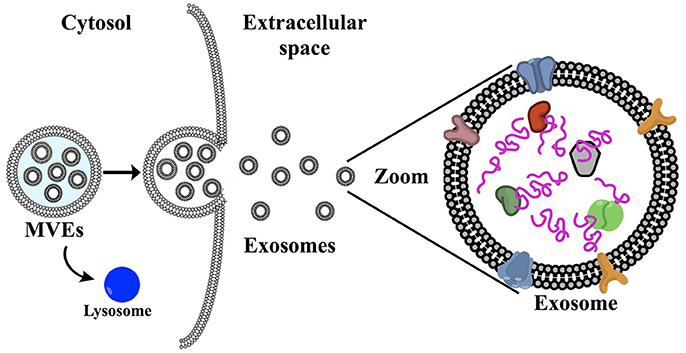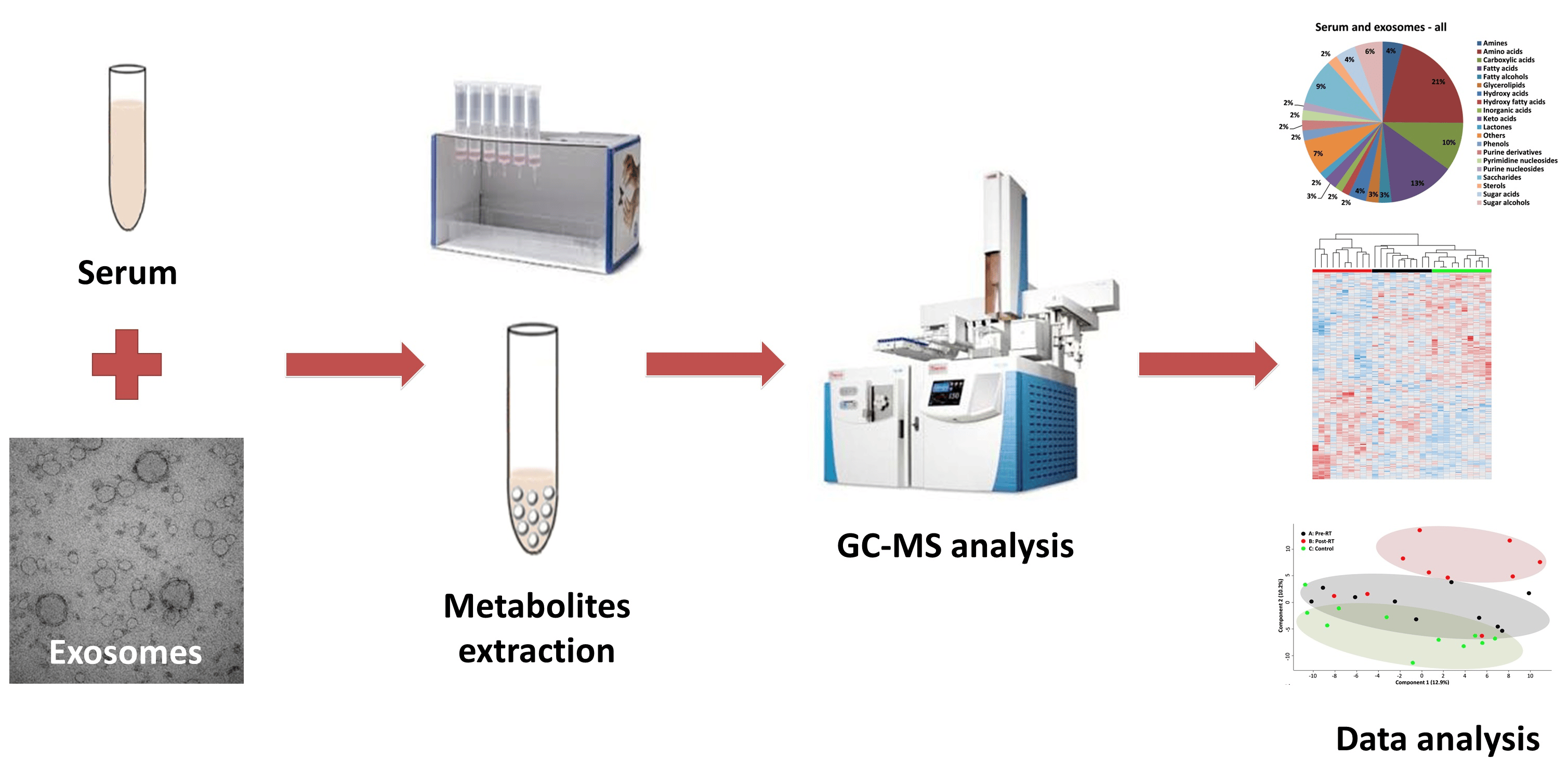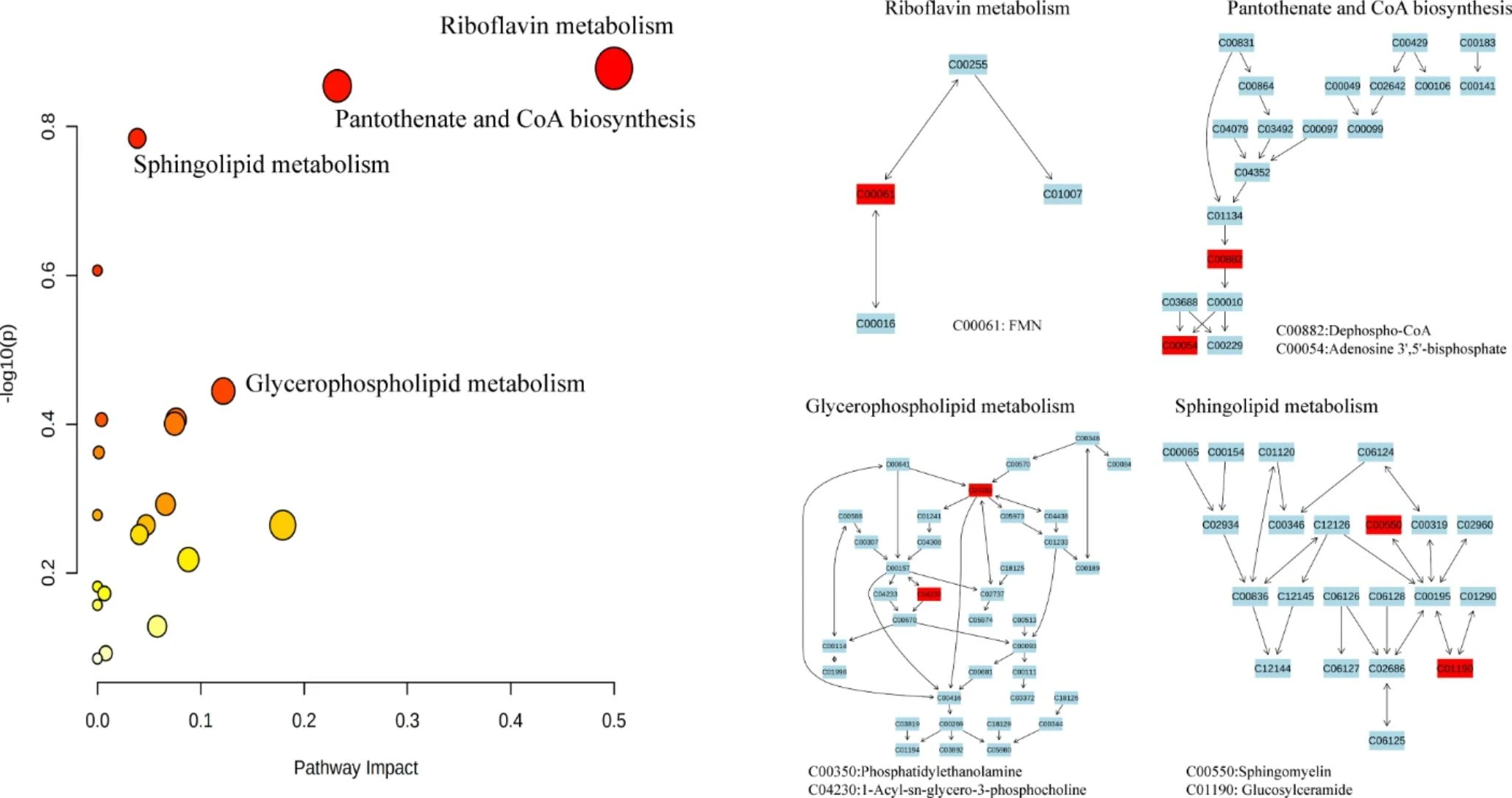Exosomes Metabolomics Service
Exosomes metabolomics analysis is a high-throughput analytical technique aimed at studying the metabolite composition and dynamic changes within exosomes. Exosomes are nano-sized vesicles secreted by cells, widely present in bodily fluids, and carry proteins, RNA, lipids, metabolites, and other molecules that participate in intercellular communication. Using high-resolution mass spectrometry, this service can comprehensively analyze the types, concentrations, and metabolic pathways of metabolites in exosomes, revealing their critical roles in cellular regulation, disease progression, and therapeutic responses.
Exosomes metabolomics service is widely applied in cancer research, neurodegenerative diseases, metabolic disorders, and immunology. In cancer research, this service helps identify metabolic biomarkers associated with tumorigenesis, metastasis, and drug resistance. In metabolic diseases, analyzing the changes in exosomal metabolites can reveal the underlying mechanisms of metabolic disorders. In immunology and neuroscience, studying the metabolites in exosomes contributes to understanding immune responses, the pathological processes of neurodegenerative diseases, and their interactions with the external environment.

Torre-Gomez, C. et al. Frontiers in Genetics, 2018.
Figure 1. Schematic Representation of Exosome Biogenesis.
Services at MtoZ Biolabs
Based on a high-resolution mass spectrometry platform, combined with advanced sample preparation and enrichment techniques, MtoZ Biolabs offers exosomes metabolomics service for comprehensive analysis of exosomal metabolites. By extracting metabolites from exosomal samples and utilizing mass spectrometry for qualitative and quantitative analysis, this service can precisely identify and quantify a variety of metabolites, revealing their dynamic changes in different biological states. The service includes the following two aspects:
1. Exosome Targeted Metabolomics
Exosome targeted metabolomics focuses on specific known metabolites. Researchers define a target list of metabolites based on their research objectives, and use high-resolution mass spectrometry to precisely measure the concentration and abundance changes of these target metabolites in exosomal samples. This method is suitable for studying changes in known metabolites and their roles in diseases, drug responses, or other biological processes.
2. Exosome Untargeted Metabolomics
Untargeted metabolomics aims to comprehensively scan all metabolites in exosomes without the need to define targets beforehand. Through high-resolution mass spectrometry, this approach identifies both known and unknown metabolites in exosomal samples and analyzes their dynamic changes in different biological states. This method can uncover new biomarkers, reveal potential metabolic regulatory mechanisms, and provide valuable insights for basic research and drug development.
Analysis Workflow

Wojakowska, A. et al. Journal of Personalized Medicine, 2020.
Figure 2. GC-MS Analysis Workflow of Exosome Metabolites in Serum Samples.
Service Advantages
1. High Sensitivity and High Resolution
Based on a high-resolution mass spectrometry platform, this service efficiently detects low-abundance metabolites, ensuring precise quantitative analysis and accurate abundance measurement.
2. Comprehensive and In-depth Analysis
By combining targeted and untargeted metabolomics approaches, the service offers a comprehensive analysis of metabolites in exosomes, revealing potential biomarkers and global metabolic changes.
3. Data Support and Applications
Provides comprehensive data analysis and biological function interpretation to support disease mechanism research, drug development, early diagnosis, and the formulation of personalized treatment strategies.
4. Personalized Custom Services
Based on the client's research objectives and requirements, customized analysis plans are offered to ensure results closely align with specific research needs.
Applications
1. Cancer Research
By analyzing the exosomal metabolites of cancer patients, the metabolic characteristics of tumors can be revealed, helping to identify potential cancer biomarkers and therapeutic targets.
2. Metabolic Diseases
In the study of metabolic diseases such as diabetes, obesity, and cardiovascular diseases, exosomes metabolomics service can detect changes in exosomal metabolites, thereby revealing the potential regulatory mechanisms of lipid metabolism and glucose metabolism.
3. Immune Monitoring and Inflammation Research
By studying the role of exosomal metabolites in immune responses, this analysis explores their potential mechanisms in autoimmune diseases and inflammation-related disorders.
4. Neurodegenerative Diseases
Exosomes metabolomics service explores the pathological mechanisms of neurodegenerative diseases such as Alzheimer's disease and Parkinson's disease by detecting changes in the exosomal metabolome, aiding in early diagnosis and therapeutic intervention.
Case Study
1. Metabolomic Analysis of Bone-Derived Exosomes in Osteonecrosis of the Femoral Head Based on UPLC–MS/MS
This study aims to explore the metabolic characteristics of bone-derived exosomes in patients with osteonecrosis of the femoral head (ONFH) to reveal the potential pathogenesis of ONFH. The study subjects included 30 ONFH patients and 30 femoral neck fracture (FNF) patients. Exosomes were extracted from femoral head tissue using ultracentrifugation, and their metabolites were analyzed using ultra-high-performance liquid chromatography-tandem mass spectrometry (UPLC-MS/MS). The results showed that the exosomes contained various metabolites, including lipids and lipophilic molecules, amino acids, peptides, and oxygen-containing organic compounds. Compared with FNF patients, 44 metabolites in the exosomes of ONFH patients were significantly different, involving pathways such as riboflavin metabolism, pantothenic acid and coenzyme A biosynthesis, glycerophospholipid metabolism, and sphingolipid metabolism. The study concluded that exosome metabolomics analysis helps to elucidate the pathophysiological mechanisms of ONFH, and changes in related metabolic pathways may play an important role in the occurrence and development of ONFH.

Guo, M K. et al. Metabolomics, 2023.
Figure 3. Metabolic Pathway Analysis of the Identified Metabolites in Exosomes.
Deliverables
1. Comprehensive Experimental Details
2. Materials, Instruments, and Methods
3. Data Analysis, Preprocessing, and Estimation
4. Bioinformatics Analysis
5. Raw Data Files
FAQ
Q1: What Specific Data Support Does the Exosome Metabolomics Service Provide?
A1: The exosome metabolomics service offers data such as the types of metabolites, abundance changes, metabolic pathways, and functional enrichment analysis in exosomes, all provided via high-resolution mass spectrometry. The analysis report includes quantitative information on metabolites, functional annotations of related pathways, and potential biomarker discoveries, helping researchers gain a deeper understanding of the role of exosomes in various disease mechanisms.
Q2: Is it Possible to Customize Exosome Metabolomics Analysis Based on Specific Research Needs?
A2: Yes, MtoZ Biolabs offers customized services. Clients can select targeted or untargeted metabolomics analysis based on their research requirements, adjust the metabolite categories for analysis, specify particular pathways, or choose sample types, ensuring the data is highly aligned with the client's research goals.
How to order?







